The School of Pharmaceutical and Chemical Engineering convened a symposium on synthetic chemistry on April 8 and 9. Chaired by Prof. Wu Jie and Prof. Wang Lei, the event was attended by TU Vice President Yang Jianguo, research team leaders, key faculty members, and graduate students. Six scholars from across China delivered riveting academic presentations, engaging attendees in discussions on breakthroughs and future directions in synthetic chemistry.
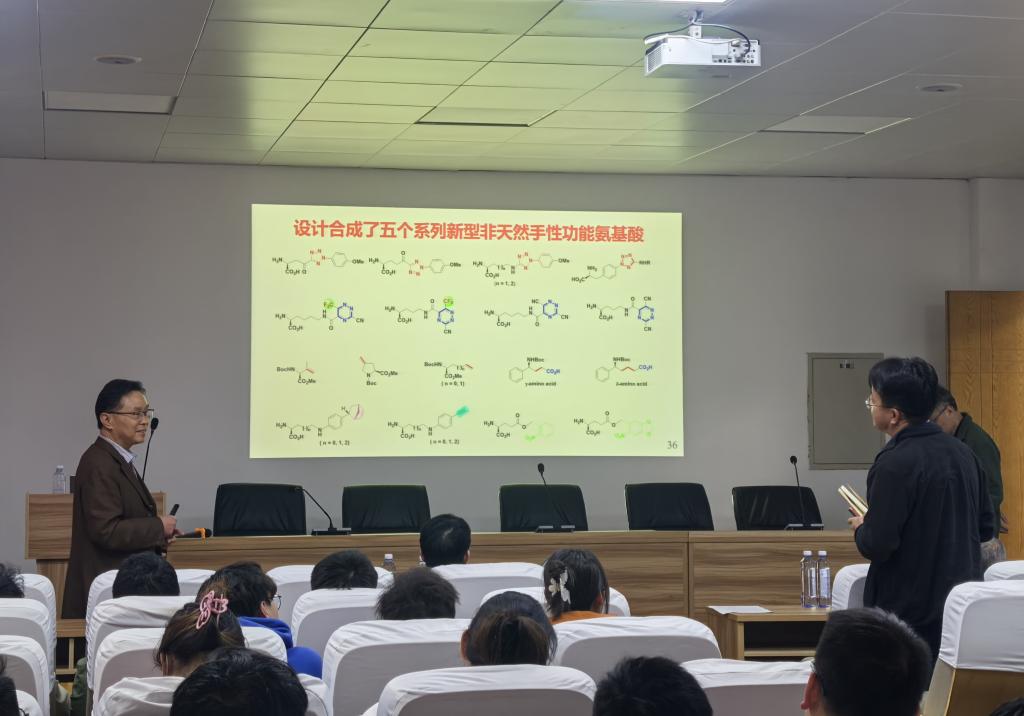
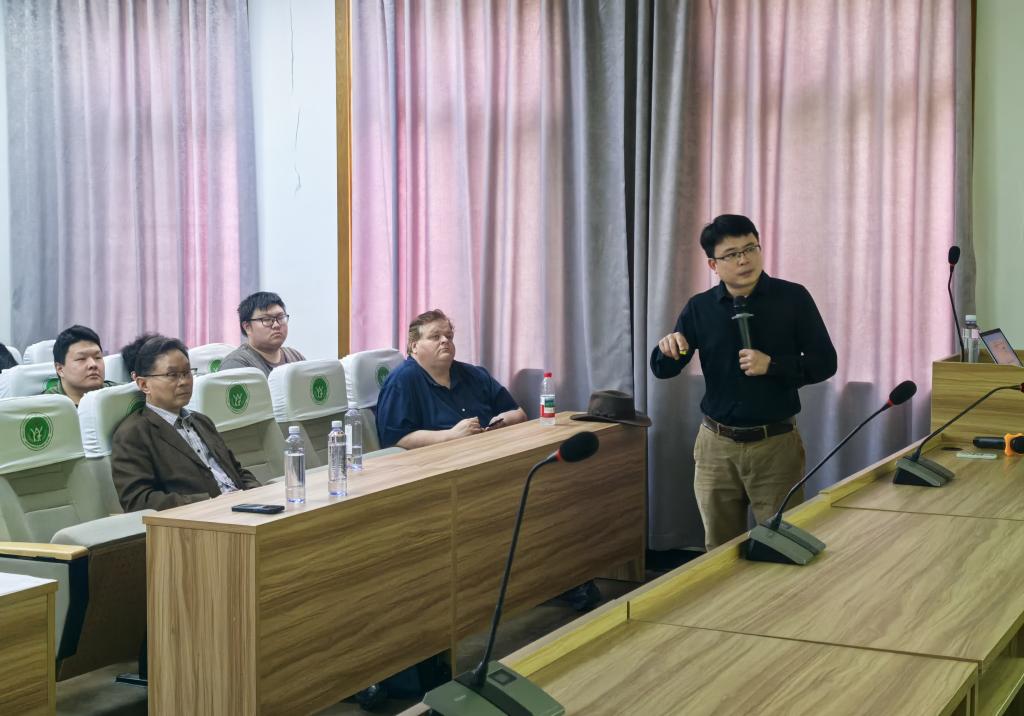
Prof. Ma Jun’an (Top) and Prof. Wang Honggen (Bottom) give lectures
On the afternoon of April 8, Prof. Ma Jun’an from Tianjin University launched the symposium with a presentation on the synthesis of non-natural chiral functional amino acids. Bridging organic fluorine chemistry and biomedical applications, he highlighted efficient synthetic pathways and their potential in drug design. Subsequently, Prof. Wang Honggen of Sun Yat-sen University detailed innovative fluorine-selective construction strategies leveraging boron effects and high-valent iodine mediation, offering fresh insights for fluorinated pharmaceutical development.
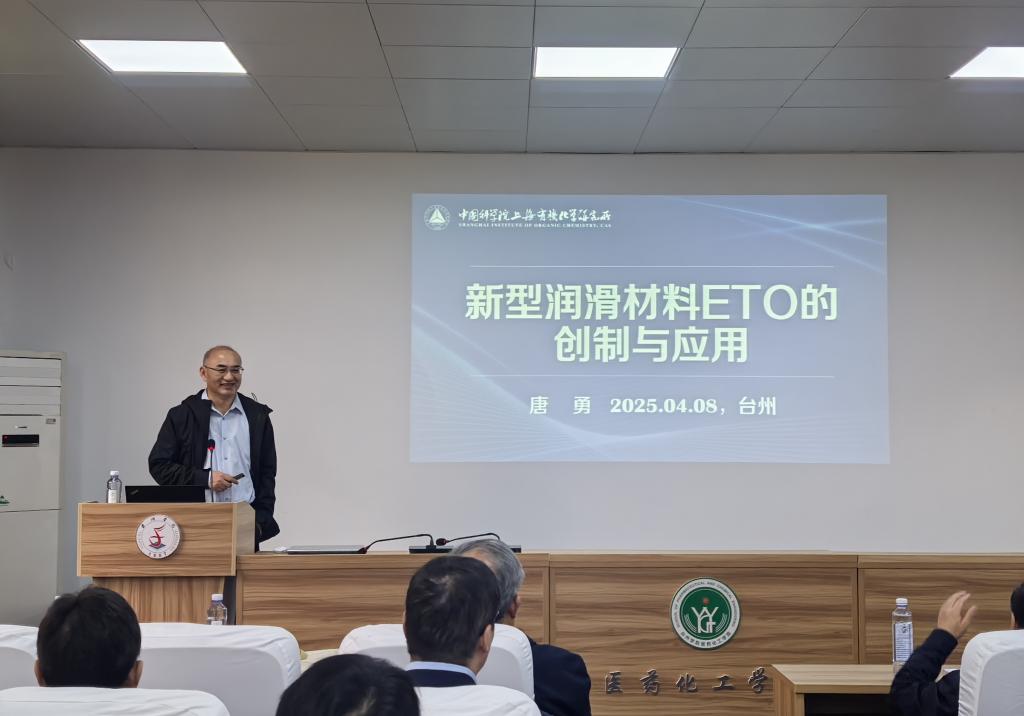
Academician Tang Yong gives a lecture
On the morning of April 9, Academician Tang Yong from the Shanghai Institute of Organic Chemistry (SIOC), Chinese Academy of Sciences, shared advances in chiral ligands for asymmetric catalysis. He also introduced novel polyolefin catalysts enabling the efficient synthesis of diverse polyethylene chain structures. His team’s ultra-low branched UHMWPE and high-performance ETO materials, already applied industrially, provide critical solutions for lubricant technology advancement.
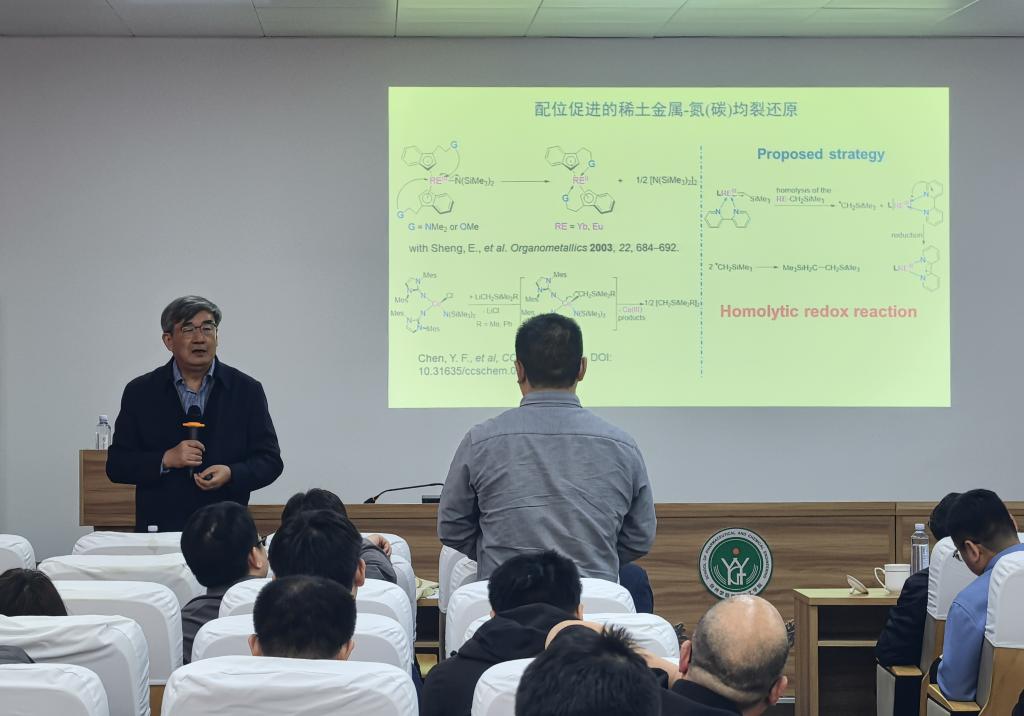
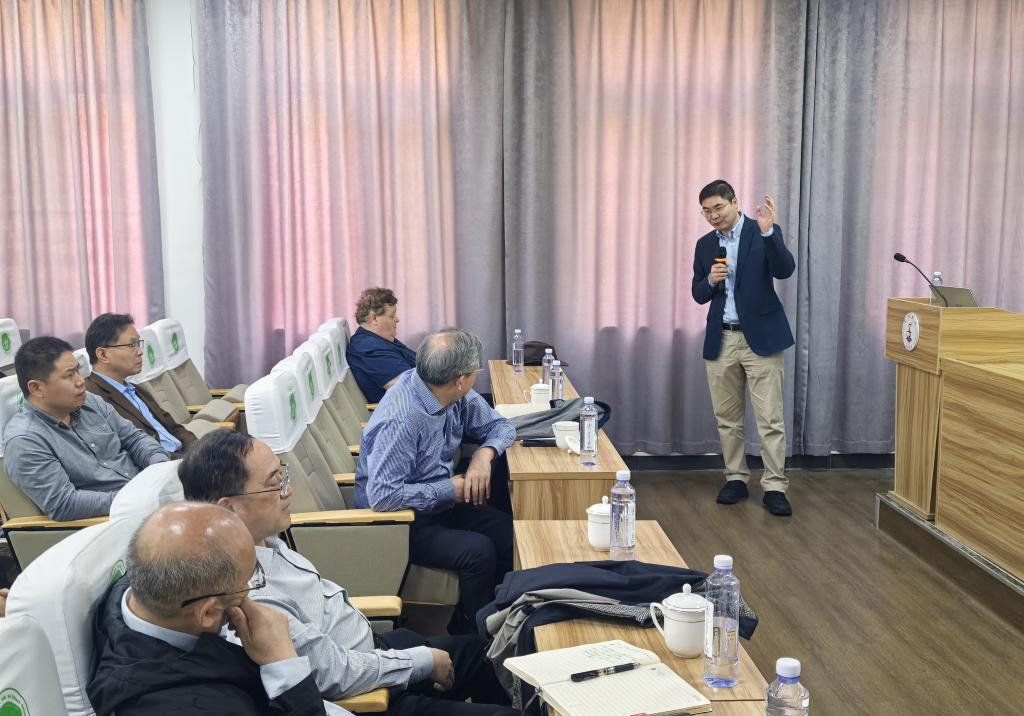
Prof. Wang Shaowu (Top) and Researcher Zhang Xingang (Bottom) give lectures
Prof. Wang Shaowu from Anhui Polytechnic University focused on rare-earth metal organic chemistry, showcasing his team’s innovations in designing and synthesizing novel rare-earth electrophilic carbene complexes. Following this, Researcher Zhang Xingang (SIOC) explored efficient selective synthesis of fluorinated organic compounds. His work on metal difluorocarbene complexes unveiled catalytic coupling reactions and mechanistic principles to accelerate drug and material innovation.
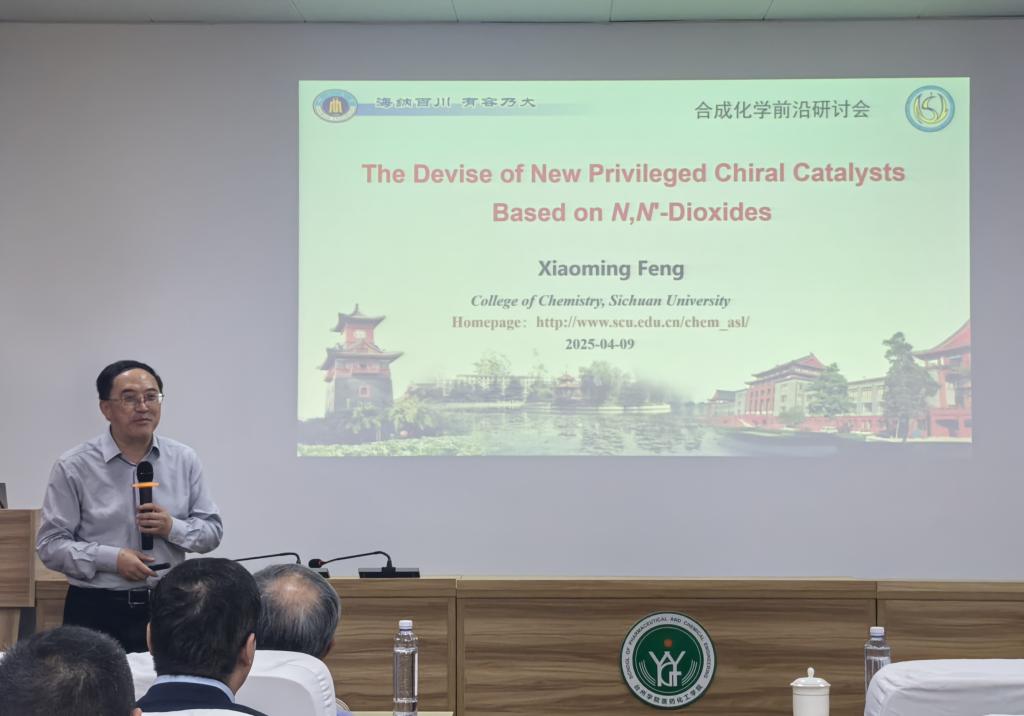
Academician Feng Xiaoming gives a lecture
Closing the symposium, Academician Feng Xiaoming of Sichuan University delved into asymmetric synthesis, presenting his team’s pioneering use of amino acids to design original chiral catalysts. The globally commercialized “Feng Ligand,” developed under his leadership, has opened new avenues for synthesizing bioactive molecules.
Throughout the event, experts and participants engaged in lively discussions on precision fluorochemical synthesis, catalytic mechanism innovation, and functional material development.
The symposium not only established a high-caliber academic exchange platform but also broadened horizons for faculty and students, offering a feast of intellectual exploration in synthetic chemistry.